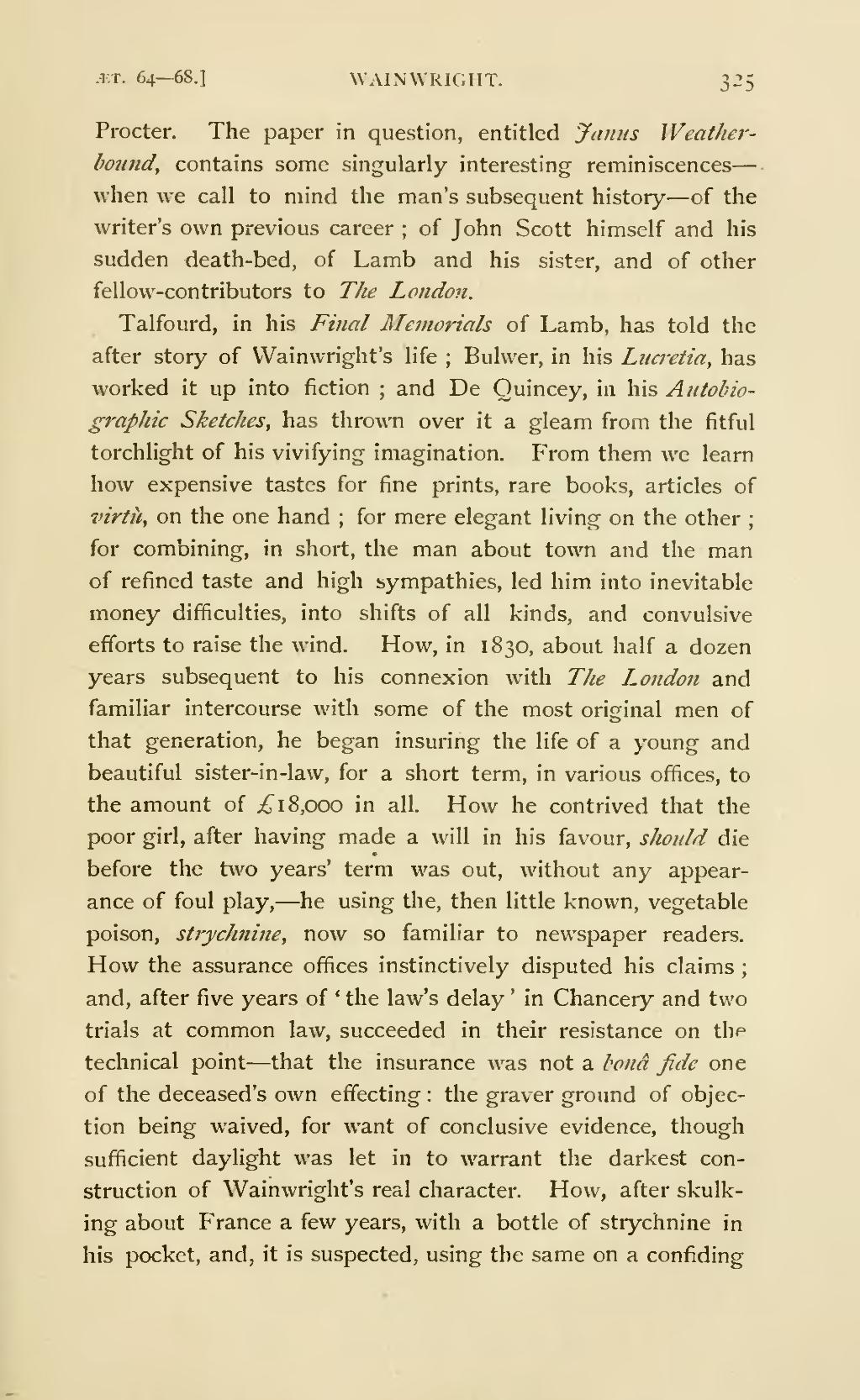Procter, The paper in question, entitled Janus Weatherbound, contains some singularly interesting reminiscences — when we call to mind the man's subsequent history—of the writer's own previous career; of John Scott himself and his sudden death-bed, of Lamb and his sister, and of other fellow-contributors to The London.
Talfourd, in his Final Memorials of Lamb, has told the after story of Wainwright's life; Bulwer, in his Lucretia, has worked it up into fiction; and De Ouincey, in his Autobiographic Sketches, has thrown over it a gleam from the fitful torchlight of his vivifying imagination. From them we learn how expensive tastes for fine prints, rare books, articles of virtù, on the one hand; for mere elegant living on the other; for combining, in short, the man about town and the man of refined taste and high sympathies, led him into inevitable money difficulties, into shifts of all kinds, and convulsive efforts to raise the wind. How, in 1830, about half a dozen years subsequent to his connexion with The London and familiar intercourse with some of the most original men of that generation, he began insuring the life of a young and beautiful sister-in-law, for a short term, in various offices, to the amount of £18,000 in all. How he contrived that the poor girl, after having made a will in his favour, should die before the two years' term was out, without any appearance of foul play,—he using the, then little known, vegetable poison, strychnine, now so familiar to newspaper readers. How the assurance offices instinctively disputed his claims; and, after five years of 'the law's delay' in Chancery and two trials at common law, succeeded in their resistance on the technical point—that the insurance was not a bonâ fide one of the deceased's own effecting: the graver ground of objection being waived, for want of conclusive evidence, though sufficient daylight was let in to warrant the darkest construction of Wainwright's real character. How, after skulking about France a few years, with a bottle of strychnine in his pocket, and, it is suspected, using the same on a confiding
